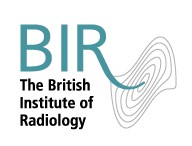It is rare for a day to pass when the healthcare system in the UK is not in the media spotlight, and it’s not very often that good news sells newspapers. Indeed, as I write this blog, I notice that the “crisis” in A&E is back on the home page of the BBC, with fears over how prepared the system is for the onslaught of winter, while it’s still 30 °C outside!
Of course, it’s worth remembering that for every newspaper headline, millions of people are cared for and successfully treated by the health service in all its guises, each day. However, as the NHS turned 65 last month we have to acknowledge that the system does have structural, long-term challenges. Those born in the years before the NHS, the over 65s, currently make up 17% of the population. In the next 50 years that percentage will rise to 27%, with the over 85s set to be the fastest growing part of the population. These statistics are in part a measure of the past success of the NHS, but an ageing demographic, living with multiple long-term conditions, will be a key factor in how its future is shaped.
 There are many debates in the public arena about how to address these challenges in the coming years. The quality, innovation, productivity and prevention (QIPP) agenda undoubtedly has a significant role to play as a framework for the NHS. The rapid adoption and spread of innovation, supporting better quality care and improvements in productivity are all objectives that the whole of the healthcare “industry” can sign up to. Putting the patient at the centre of this process, supported by appropriate technology and resources, will positively impact patient outcomes.
There are many debates in the public arena about how to address these challenges in the coming years. The quality, innovation, productivity and prevention (QIPP) agenda undoubtedly has a significant role to play as a framework for the NHS. The rapid adoption and spread of innovation, supporting better quality care and improvements in productivity are all objectives that the whole of the healthcare “industry” can sign up to. Putting the patient at the centre of this process, supported by appropriate technology and resources, will positively impact patient outcomes.
Radiology has a pivotal role here in delivering accurate and timely diagnosis, enabling clinicians and patients to make informed choices about the direction of treatment and care. There was a fascinating debate on the radio last week about the notion of “too much healthcare”, and it concerned a patient who had been successfully diagnosed and treated for cancer. However, the aggressive approach to his treatment had left him with a number of serious long-term issues which could have been avoided. I was left with a sense that better diagnosis and information could have led to a better patient outcome, and significantly reduced the initial and ongoing treatment costs.
As a manufacturer and provider of healthcare services, at Philips we are working to understand how the QIPP agenda is being implemented at local levels, so that we can deliver tailored solutions. By combining the capabilities of the NHS with the technical expertise and infrastructure of a large multinational company, we believe that we can achieve more together. We are on a quest to develop more innovative solutions that will enable you to collaborate freely, diagnose more confidently and provide care passionately.
Here’s to the next 65 years!
Neil Mesher, Managing Director, Philips Healthcare


